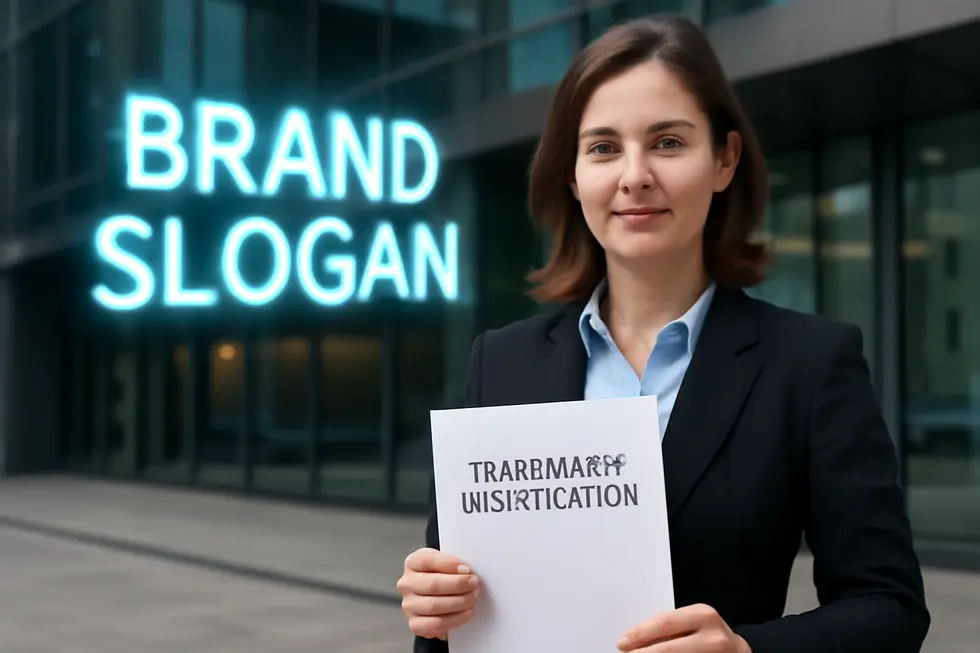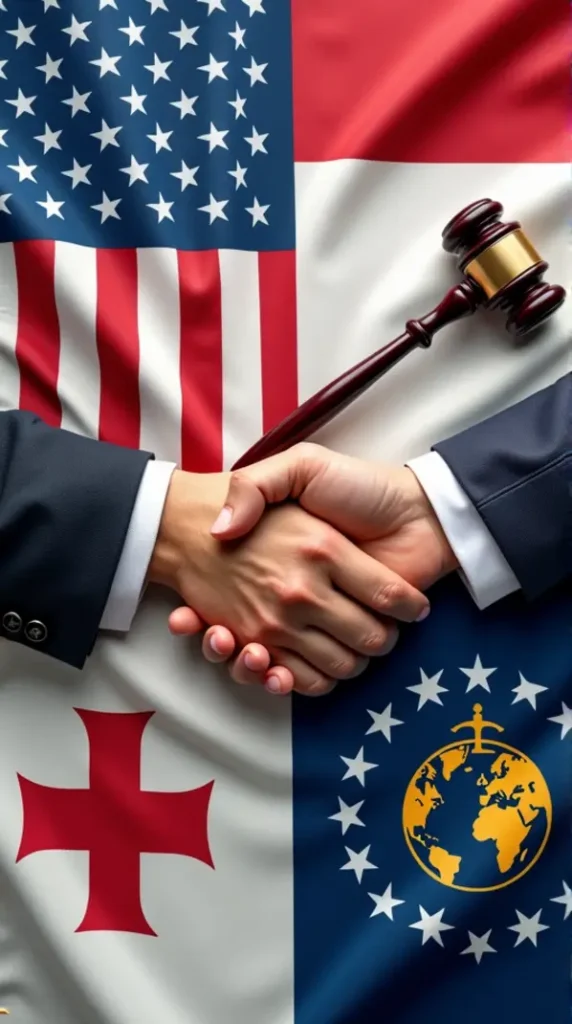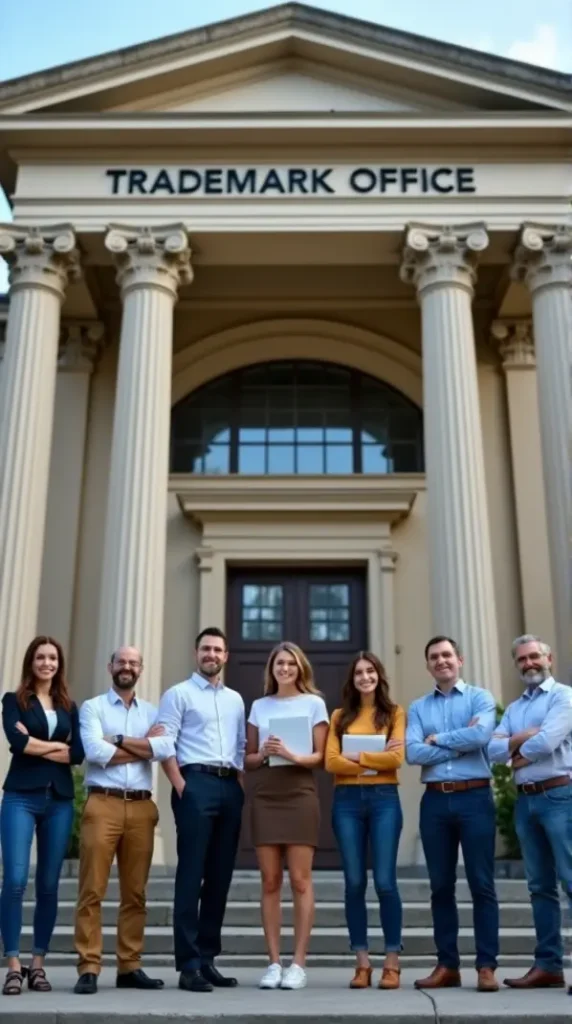Slogans are more than catchy phrases—they are critical elements of a brand’s identity that can influence consumer perceptions and loyalty. For business owners aiming to protect their marketing assets, understanding whether slogans can be trademarked is essential. Not all slogans qualify for trademark protection. To serve as a source identifier, a slogan must be distinctive and unique enough to link a product or service directly to your brand. This article explores the key aspects you need to know about trademarking slogans. First, we delve into the distinctiveness requirement, explaining what makes a slogan eligible for trademark protection. Next, we outline the trademark registration process, helping you understand the steps involved in securing your slogan’s legal status. Finally, we highlight the legal protections and business benefits that come with trademark registration, empowering you to defend your brand against infringement and build lasting market strength. Each chapter adds a vital piece to the puzzle, offering you a comprehensive view on how to harness trademark law to protect your business’s slogans effectively.
Understanding the Crucial Role of Distinctiveness in Trademarking Slogans

Trademark law hinges on the clear ability of a slogan to identify and distinguish the goods or services of one business from those of others. This ability, known as distinctiveness, is the foundational criterion that determines whether a slogan qualifies for trademark protection. Without it, a slogan cannot serve as a trademark, and consequently, it cannot be registered or safeguarded under trademark statutes.
Distinctiveness is not merely a formality but an essential function that ensures consumers associate a specific phrase with a particular source or brand in the marketplace. This means a slogan must transcend simple description or generic usage and instead act as a unique signature linking a product or service to its owner. The law thus demands that a trademarked slogan performs as a symbol of origin rather than just a marketing phrase.
There are two primary pathways through which a slogan can meet the distinctiveness standard: inherent distinctiveness and acquired distinctiveness, often referred to as secondary meaning. Inherently distinctive slogans stand out by virtue of their originality and creativity. They may be fanciful, arbitrary, or suggestive, qualities that instantly separate them from generic or purely descriptive expressions. For example, a slogan that uses imaginative language with no direct connection to the product’s nature can be inherently distinctive. Such slogans do not require extensive consumer recognition to qualify for trademark registration because their uniqueness inherently signals a source.
Conversely, acquired distinctiveness arises when a slogan that might otherwise be considered descriptive gains recognition through extensive and continuous use in commerce. This means consumers have come to associate the phrase unmistakably with a single provider of goods or services due to its repeated exposure and tied association. This process typically involves substantial promotional efforts, advertising, and duration over time, during which the slogan earns its secondary meaning as a brand identifier.
Trademark authorities and courts are often cautious in granting protection to slogans that are merely descriptive of the products or services offered. Descriptive slogans straightforwardly communicate characteristics, qualities, or features of the goods or services and thus do not inherently function as source identifiers. Such slogans are usually refused registration unless evidence convincingly demonstrates that they have acquired distinctiveness. In practical terms, this evidence might include consumer surveys, sales figures, advertising expenditures, media recognition, and testimonials that confirm widespread brand association.
The degree of distinctiveness also influences the scope and strength of the trademark’s protection. Slogans that are highly distinctive receive broader safeguards against infringing use by competitors. This protection prevents others from adopting similar phrases that could confuse consumers or dilute the brand’s unique identity. On the other hand, slogans with limited distinctiveness may face difficulties enforcing their trademark rights, as courts balance the need to protect trademarks against allowing fair competition and free use of descriptive language.
As a trademark applicant or business owner, understanding these nuances is critical for successful registration and enforcement. A well-chosen slogan that is either inherently distinctive or supported by evidence of acquired distinctiveness positions a brand for robust legal protection. Before submitting a trademark application, conducting a comprehensive trademark search is vital to ensure the slogan does not conflict with existing trademarks that could block registration due to likelihood of confusion.
Developing distinctive slogans is often a strategic branding effort involving creative phrasing and consistent marketing to build consumer recognition. Businesses frequently invest in widespread advertising campaigns aimed at embedding their slogans in the public’s mind, thereby enhancing the slogan’s secondary meaning. Such a demonstrated association is compelling to trademark examiners and courts when assessing registration applications and infringement claims.
Given the complexity of satisfying the distinctiveness requirement, many businesses consult intellectual property professionals to craft slogans and navigate the registration process. Protecting a slogan legally through trademark registration effectively safeguards the brand’s identity and marketing investment by granting exclusive rights to use the slogan commercially. It also provides a legal basis to challenge potential infringers who attempt to capitalize on the established goodwill without authorization.
For readers looking to deepen their understanding of the strategic importance of trademark registration and how it protects your brand assets, exploring resources like brand trademark business protection can provide valuable insights. This knowledge enables smarter decisions in developing and maintaining distinctive slogans that meet stringent legal criteria.
In summary, without distinctiveness, a slogan cannot fulfill its essential role as a trademark. Whether inherently unique or earned over time through consumer recognition, distinctiveness is the gatekeeper for a slogan’s legal trademark status. This principle ensures that trademarks remain reliable indicators of source in the marketplace, fostering brand loyalty and fair competition. As such, businesses aiming to trademark slogans must focus intently on establishing and evidencing this critical attribute during the registration process.
For an illustrative example of how courts evaluate acquired distinctiveness, legal discussions such as the Thai court’s treatment of secondary meaning through usage demonstrate the practical application of these principles globally, reinforcing that the distinctiveness requirement is a universal standard in trademark law.
Navigating the Trademark Registration Journey: Securing Your Slogan’s Legal Identity

Trademarking a slogan is a powerful step for any business aiming to protect its unique brand voice and identity. To successfully secure trademark protection for a slogan, the process involves a series of deliberate, legally-informed actions designed to verify and establish the slogan’s distinctiveness as a source identifier. Unlike logos or business names, slogans must demonstrate their ability to uniquely represent the origin of goods or services, rather than simply describe them. This distinction makes the registration process both rigorous and essential for long-term brand protection.
The journey begins with conducting a comprehensive trademark search. This initial step is critical and often underestimated. A thorough search filters out potential conflicts with existing trademarks, ensuring no one else has already claimed rights to the slogan or a confusingly similar phrase. Undertaking this task carefully prevents future legal disputes and registration denials. Many applicants use professional databases or legal experts to perform these detailed searches, helping to uncover trademarks that could bar registration.
With a clean slate confirmed, the next move is to prepare and file the application with the United States Patent and Trademark Office (USPTO). The application must precisely depict the slogan and clearly state the goods or services associated with it. This includes demonstrating the slogan is actively used in commerce — mere slogans displayed decoratively or aspirationally without real marketplace connection are unlikely to meet USPTO standards. The application should articulate how the slogan functions as a brand identifier, not just a catchy phrase. Careful articulation and accuracy here can make a crucial difference.
Upon submission, the USPTO issues a filing receipt containing a unique serial number. Following this, a USPTO examining attorney reviews the application in detail. They assess whether the slogan qualifies for trademark protection by checking its distinctiveness, ensuring it’s not merely generic or descriptive, and investigating any conflicts with prior marks. During this examination, applicants might receive office actions, which are official communications pointing out issues or requiring additional evidence or clarification. Prompt and well-crafted responses to these objections are vital to maintain momentum in the registration process.
Assuming the examining attorney finds no substantial issues, the slogan enters a public opposition phase. This phase involves publication in the USPTO’s Official Gazette, offering third parties the opportunity to oppose registration if they believe their own rights may be infringed. Opposition periods typically last 30 days, and while many slogans pass without challenge, this public scrutiny is an important legal safeguard ensuring fair competition.
Once any oppositions are resolved and the slogan meets all criteria, the USPTO moves to register the trademark. This grants the applicant exclusive nationwide rights to use the slogan in connection with the specified goods or services. Registration empowers the owner to prevent others from using confusingly similar slogans, enforce rights in court, and enhances the brand’s overall market value.
The timeline for this process generally spans from 8 to 18 months, reflecting complexities such as office actions or oppositions that may arise. Compared to the limited “common law” rights acquired through simple usage without registration, a registered trademark provides stronger, more comprehensive legal protection across the United States.
It is important to appreciate that slogans, while eligible for trademark protection, must cross the threshold of distinctiveness and brand association. Simply put, a slogan that merely describes a product’s qualities, price, or nature will often fail to qualify. Instead, effective trademark slogans are memorable and uniquely tied to their brands, like iconic examples that have successfully received protection.
Businesses looking to protect their branding efforts through slogan registration can find detailed guidance, including application procedures, fee structures, and assistance options, from legal resources and service providers. Utilizing these helps navigate the complex requirements effectively, maximizing the chance of successful registration.
For those interested in understanding how trademarks safeguard various elements of a brand and the broader advantages of registration, exploring resources on legally protected branding can offer valuable insights and deepen strategic intellectual property planning. One such useful reference is available on brand trademark business protection.
Finally, comprehensive information and step-by-step guides from authoritative sources like Rocket Lawyer provide practical help and reduce uncertainty throughout the trademark registration journey. This ensures that businesses can secure their slogans as unique trademarks—establishing a strong, legally protected foundation for their brand identities.
Securing Your Brand: How Trademark Protection Empowers Distinctive Slogans

Trademarking slogans is a powerful legal tool that helps businesses safeguard the essence of their brand identity. A slogan, when carefully crafted, does more than just promote a product or service—it acts as a shorthand that instantly connects consumers to a specific business. Yet, not every catchy phrase qualifies for trademark protection. To secure legal rights over a slogan, it must meet key criteria established by trademark law, ensuring that it distinctly identifies the source of goods or services and is not merely descriptive or generic.
At the heart of trademark eligibility lies the concept of distinctiveness. A slogan must be unique enough that consumers immediately associate it with a particular brand rather than viewing it as a general statement. For example, slogans that are purely descriptive of a product’s characteristics or quality generally cannot be registered unless they have acquired what is known as “secondary meaning.” This means that through extensive use and consumer recognition, the slogan has become distinctly tied to the brand’s identity. Generic slogans—those common phrases used broadly in an industry—fail to qualify because they lack the unique branding element necessary to distinguish one company from another.
Additionally, a trademarked slogan must be actively used in commerce. Simply owning a slogan or creating a clever phrase does not confer trademark protection. The slogan must function as a brand identifier on products or services offered to the public. This use in commerce demonstrates that the slogan serves a practical purpose beyond marketing fluff: it signals to consumers the origin of goods or services, helping build brand loyalty and trust.
The legal benefits of registering a slogan as a trademark are substantial. Once granted, the registration provides exclusive rights to use that phrase commercially for the goods or services specified in the trademark application. This exclusivity helps prevent competitors from adopting confusingly similar slogans that could dilute the brand’s identity or confuse customers about the source of products. Moreover, trademark protection enhances the overall value of a brand, contributing to consumer confidence by signifying authenticity and consistent quality.
From a business perspective, securing trademark protection for a slogan fortifies your brand against infringement and unauthorized use. It equips you with legal enforcement mechanisms that are crucial in defending your investment in branding. If another company uses a confusingly similar phrase, a registered trademark allows you to pursue legal action, including cease and desist orders or lawsuits, to halt and remedy such violations. The ability to protect your slogan legally underscores the importance of thoughtful slogan creation and registration as part of a broader brand strategy.
Navigating the trademark registration process involves several organized steps. First, a comprehensive trademark search is essential to ensure your slogan is not already claimed or too similar to existing registered marks. This reduces the risk of rejection due to likelihood of confusion and helps avoid costly legal disputes down the line. Following the search, a formal application must be submitted to the relevant trademark authority, such as the United States Patent and Trademark Office (USPTO) in the U.S. The application must include details about the slogan’s use in commerce and its association with specific goods or services.
After submission, the trademark office examines the application for compliance with legal standards, distinctiveness, and potential conflicts with other trademarks. During this examination, the applicant may need to address objections or office actions, providing additional information or clarifications to support the registration. Maintaining the trademark involves ongoing requirements, including periodic renewals and declarations of continued use, to preserve legal protections over time.
It is important to acknowledge the limitations inherent in trademarking slogans. Slogans that are deceptive, functional, or too generic cannot receive trademark protection. The level of protection varies with the strength of the slogan’s distinctiveness; arbitrary or fanciful slogans enjoy the most robust legal safeguards, while those less distinctive receive narrower protection. Therefore, investing time in developing a creative and distinctive slogan not only aids marketing but is crucial for securing the strongest trademark rights.
Understanding the legal framework and practical benefits of trademarking slogans can deeply influence brand development and protection strategies. For businesses aiming to defend their unique voice in the marketplace, trademark registration is a critical component. It transforms a marketing phrase into a legally enforceable asset that preserves brand integrity against infringement.
For a deeper dive into the specifics of trademarking slogans and the registration process, resources such as The Language Library’s explanatory video offer valuable guidance: The Language Library video on slogan trademarking. Additionally, exploring comprehensive insights on brand protection can be beneficial, such as understanding how to secure your brand through trademarks effectively in commerce, which you can read more about in this article on legal protections for trademarks and business brands.
Ultimately, the journey to trademarking a slogan is a strategic endeavor that combines creativity with legal rigor. When successfully registered, the slogan does more than market a brand; it legally binds the phrase to your business identity, granting you exclusive commercial rights and essential tools for protecting one of your most valuable intellectual properties.
Final thoughts
Protecting your business’s slogans through trademark registration is a strategic step that anchors your brand in a competitive marketplace. By ensuring your slogans are distinctive and clearly function as source identifiers, you lay a strong foundation for legal protection. Navigating the registration process with care and attention reduces obstacles and speeds your pathway to official trademark status. Once registered, your slogan becomes a valuable legal asset, offering exclusive rights and the power to combat infringement, while enhancing consumer trust and brand equity. For business owners, understanding these critical facets not only empowers you to safeguard your marketing efforts but also solidifies your brand’s identity and longevity in the market. Investing time and resources into trademarking your slogan today paves the way for sustainable business success tomorrow.
Get your trademark today! Thousands have protected their brand by filing a trademark. What are you waiting for? Start your trademark application!
About us
The globe’s top website for registering trademarks and safeguarding your brand, name, logo, or slogan. We provide expert guidance and streamlined services to help business owners secure and maintain their valuable intellectual property with confidence and ease.





